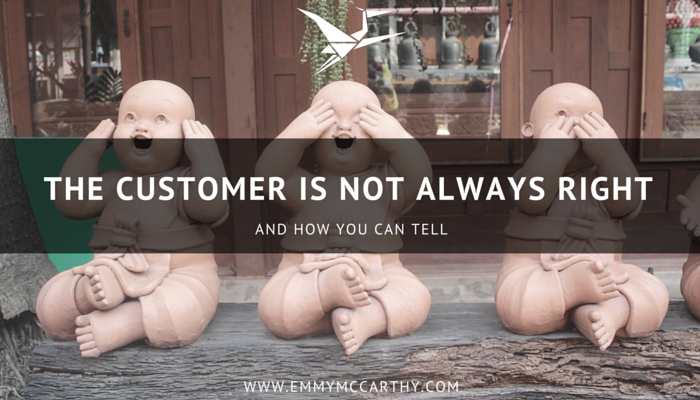Can Your Business Operate Without You?
/In 2014 I burnt out. A combination of things happening in my personal life and the stress of running a fast-growing, rapidly evolving not-for-profit foundation pushed my body and mind over the limit of what it could handle and I simply stopped being able to function. I was angry, sad, resentful and numb on what seemed to be a minute-by-minute rotation of emotions. I was so physically depleted that my entire body felt as if it was failing one part at a time. My hair fell out, my skin flaked, I caught every virus going and could barely make it out of bed to care for my son.
If I had been employed, I would have been signed off sick by a doctor and told to rest and recover. But as a business owner, that simply wasn’t an option. I was lucky, I had a team supporting me and enough processes in place that they could keep the basics (and often way more than the basics) operational while I fell apart. It wasn’t perfect, it put immense strain on them and they definitely struggled as I dropped off the radar and failed to respond in a timely manner, if I responded at all.
It was a dark time.
Life Happens
As I said, I was lucky, I had people who were able to pick up the pieces I had left and make it work. My business kept running. But if you are a solopreneur, a team of one, what do you do when life happens to you and you can’t run your business the way you have been running it or maybe, at all?
Now that I have my own consultancy, where I am the only information holder, it is even more critical to ensure that in the event of something happening, my business and my clients would be taken care of.
Because next time, it may not be a burn-out. There are a whole host of other things which could compromise our ability as business owners to do our work and none of them are pleasant. As an expat I’ve had to make the sad dash to the airport to say goodbye to someone I love at the end of their life. I’ve watched friends suffer a relative’s diagnosis of terrible illness which takes all their strength to battle or have their lives flipped upside down as they have to drop everything for a parent who can no longer support themselves.
Our lives can change in an instant and preparation for this is like an insurance policy. We hope we will never have to use it but if we do, we are grateful that we planned for it.
The Steps You Can Take Right Now to Protect Your Business
Fortunately, while we cannot plan for every eventuality, there are steps that we can take to mitigate the impact of an emergency in our personal lives when it comes to our business. The details of what needs to be done will be different for every business but the basics you should cover are broadly the same.
1. Document Your Systems and Processes
This is good business practice anyway, to move all your important information, how-tos and other business-critical details into a centralised, accessible location. I call this my HUB and go into much more depth about it in my Asana Training videos. Make sure you include how to do the business-critical parts of your work as well as documenting the most important information and contact details that someone else would need to run your business.
If you just have one place to direct someone to that contains all the information that they require in order to carry out your emergency plan then it makes it much more efficient for everyone.
2. Create an In Case of Emergency Planning Document
This document should contain a step by step of what a trusted third-party should do in the event that you are unable to run your business. Within this document you should cover two scenarios:
- The Temporary Emergency Plan - Which enables them to keep your business operational while you are temporarily unable to do so.
- The Worst Case Emergency Plan - Which gives them the information they need to wrap up and close your business.
You must consider what the most critical steps are in each situation, what information and contact details would be needed by your trusted person and where those details can be found.
Neither of these scenarios can be described as pleasant to plan for, which is probably why we put off doing it, but it is important to consider what would need to be done in each case to help the person that you will be choosing to implement them.
3. Choose a Person
If you are temporarily or permanently unable to run your business then someone else will need to do it for you. Choose this person wisely because they will be holding the keys to your current and future livelihood. Bear in mind that while your most trusted person may be within your immediate family in the event that something happens to you (or to them) they and the people closest to you may well be in crisis mode and unable to focus on your business. Which is not to say that they shouldn’t be the holder of the keys to the information, but you should write your plans as if they might have to be handed to someone else further down the line.
This shouldn’t need to be said, but you do need to check, by which I mean have a proper conversation with, the person you choose to make sure that they are happy and comfortable performing this role for you. We cannot just assume that people will or are able to do this task for us. Ask first.
The Next Right Step
The thought of having to do this may seem overwhelming, particularly if you don’t yet have a centralised place for your information. It can be tempting to put these things off because we think it could never happen to us and we’ve got other, more important things to take care of
I know. I’ve been there too.
But, if you do nothing else, have a think about who would be able to support you in the event of an emergency and try to have a talk with a trusted person about the “what if” scenarios.
If you can create time to do a bit more, then make creating the In Case of Emergency Planning Document your next right step. To help you on your way, I am making my own In Case of Emergency Planning Template available to you right here. There is no opt-in required, you can just click and copy it to your own Google Drive and fill it out with the critical details for your business.
Being prepared costs nothing
Doing advance preparation for something that may never happen costs us nothing but time. What it represents though, is a commitment and service to your business and clients which is far in excess of any immediate financial reward.
It is my most sincere wish for you, that you never have to face a temporary or permanent disruption to your business which is out of your control.
But just in case, isn’t it better to start planning for it now so that if it happens, everyone knows exactly what to do?
NOTES FOR THE CURIOUS
If you want more systems and strategies to help you work on your business instead of in your business, then you'll love my Notes for the Curious. It's published every two-weeks and delivered straight to your inbox. Notes for the Curious is a curated digest of everything I am learning and loving about running a business and living a life on purpose. From time management, to goal setting, community building to confidence boosting as well as systems and tools to make your life easier, we will cover it all.
Fill out your details below to receive the next edition.












